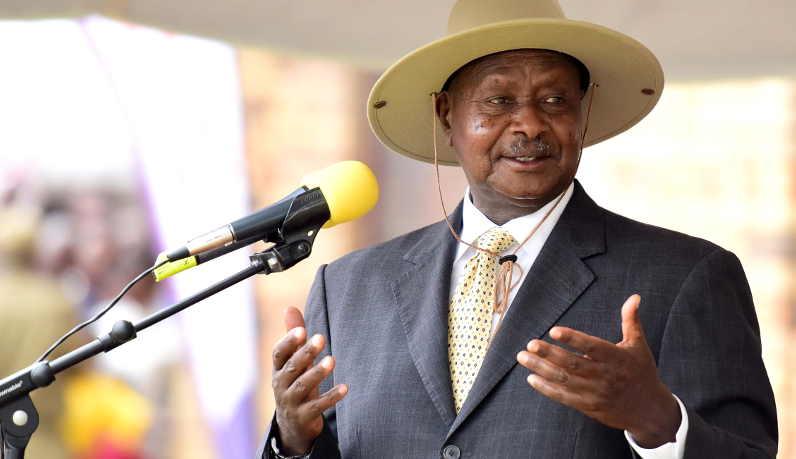The government has been forced to abandon its plan to amend Article 26 of the 1995 Constitution to give it powers to acquire private land without prior compensation.
The NRM caucus sitting at State House in Entebbe on Wednesday resolved to leave Article 26 of the Constitution intact. The article guarantees rights of land ownership by individuals and institutions.
Ntenjeru North MP Amos Lugoloobi said while appearing at CBS’s Kiriza oba Gaana evening political talk show that majority of NRM legislators stood their ground in opposing the president, reportedly asked the MPs whether they don’t want development, to which they ‘chorused’ yes but with caveats.
The caucus, according to Lugoloobi, set up a committee of prominent lawyers led by the Vice President Edward Kiwanuka Ssekandi to strengthen the Land Act and introduce new provisions on compulsory land acquisition.
The caucus also reportedly agreed to up a special court or tribunal that would expeditiously resolve cases arising from land owners disputing the value of land that is assessed by the government’s chief valuer.
Land experts however argue that there is no need for a new law on land acquisition adding that the Land Acquisition Act of 1965 has been used effectively before and conforms to the 1995 constitution.
The decision will undoubtedly be a source of relief for most people in Uganda who have expressed anger at the government’s ‘illegal’ plan. Governance experts may also consider it a victory as the government proposal was deemed illegal and a violation of the long-held human rights principles that have underpinned human rights principles as spelt out under the 1215 AD Magna Carta.
The creation of the Ssekandi’s committee was however mocked by some legislators as a sign of government’s attempt to flog a dead horse.
Ajiru county MP Denis Hamson Obua told NBS TV that as far as he’s concerned, the proposed land amendment bill is dead and buried.
Is it the end of Kogikwatako?
The Democratic Party with its Kogikwatako campaign under which the party is opposing the proposed lifting of the age limit, have their work no less easier.
It was feared that the Age Limit bill (a proposal to lift the constitutional age limit of 75yrs for anyone contesting for presidency) would be lumped together with the land amendment bill and have them passed together. President Museveni has down played interest in lifting the age limit, but his operatives are working underground to mobilize for the project.
The rejection of the land aspect of the constitution amendment, leaves President Museveni in more problems.
Museveni now has to craft a whole new plan to bring the age-limit bill. At the same time, the President’s plan of fast tracking the export of crude oil from Bunyoro appear to have suffered a set back by the aborted article 26 constitutional amendment.
The government now has to dig deeper in its pocket to look for money to compensate land owners along the entire length of the pipeline from Bunyoro to the Tanzanian border.








